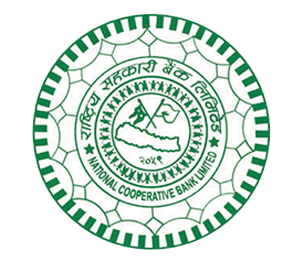Co-operatives in Nepal
At the beginning the government emphasized on the concept of self-help in order to accelerate the development process at local level aimed to mobilize resources for socio–economic development of people through co-operative movement. Co-operative Department had provided authority and made directly involved in establishing, operation and regulating co-operative societies and unions. After the restoration of democracy in 1990 A.D (2046 B.S.), the democratic government enacted the Co-operative Act 1992 A.D (2048 B.S) and the Co-operative Regulations 1993 A.D (2049 B.S.) The new Cooperative Act has provided an opportunity to the Nepalese people to establish independent and autonomous co-operative societies by themselves, according to their capacity to fulfill their own needs.
The Co-operative Act 1992 A.D (2048 B.S) has firmly accepted the cooperative principles and provided a legal base both for the establishment of co-operative societies/unions/federations and application of co-operative values, norms and principles into practice. At present, the Department of Co-operatives is working under the Ministry of Agriculture and Co-operatives to enhance the local entrepreneurship as well as to develop local leadership through the promotion, regulation and development of Co-operatives for economic, social and cultural development of their members.
The co-operative concept in the form of Guthi, Parma, Dhikuti, Dharma Bhakari etc, has been used from a very beginning in Nepalese societies. Characteristics of these historical social institutions are almost resembled with primary form of co-operatives. For the institutional development of such societies, then government aimed to adopt co-operative system as a means for economic social and cultural development of the people as well as an appropriate and effective tool for rural development. Then government established the Department of Co-operative under the Ministry of Planning, Development and Agriculture in 1953 A.D (2010 B.C). Savings and credit cooperative society capital was transformed into a cooperative bank in 1963, and it was further transformed into the Agricultural Development Bank of Nepal in 1968. (ADBN). The Cooperative Act was once more changed in 1975 after the ADBN relinquished management to the government after five years.
The modern cooperative movement initiated from Rapti Valley (Chitwan District) as a part of flood relief and resettlement program. At the first time 13 credit cooperative societies established in 2013 B.S. were provisionally registered under the executive order of the government which got legal recognition after the enactment of Cooperative Societies Act 2016 B.S.(1959 A.D.). The first Co-operative Societies Act was revised several times and it was replaced by the Sajha Societies Act in 2041 B.S.(1984 A.D.). After the restoration of multiparty democracy the Sajha Societies Act was replaced again by the Co-operative Act 1992. The Department of Co-operative has provided the authority for registration and regulations of co-operative societies/unions/federations under the Acts.
Savings and Credit, Multipurpose, Dairy, Agriculture, Fruits and Vegetables, Beekeeping, Tea, Coffee, Consumers, Science and Technology, and Energy are the main categories of co-operative societies that operate in Nepal, according to the Department of Cooperative. More than 60,517 people work directly for cooperative businesses, and it is estimated that approximately 6 million people are members of the 34,512 cooperatives.




